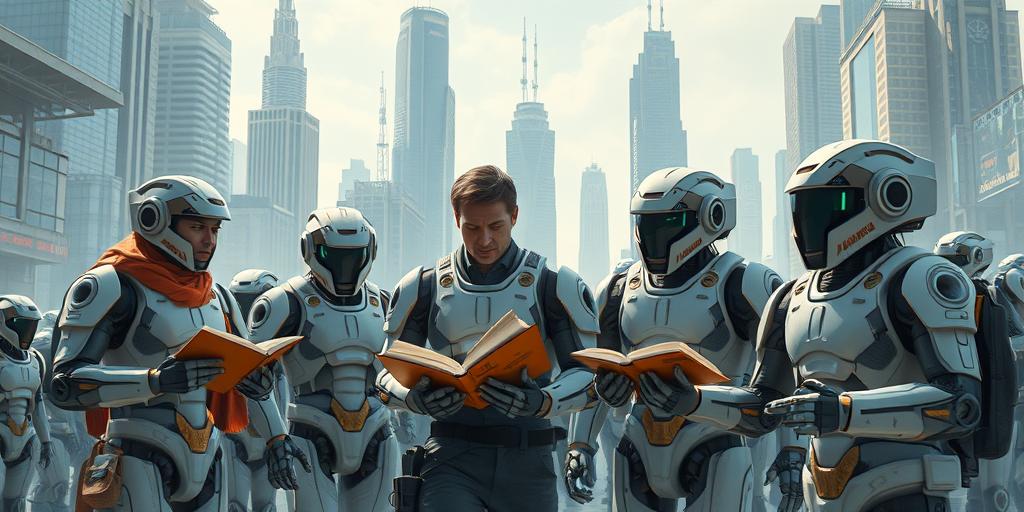Artificial intelligence (AI) is rapidly transforming our world, from the way we work to how we interact with each other. But what is the true impact of AI on human intelligence? Is it making us smarter, or are we becoming more reliant on technology, leading to a decline in our cognitive abilities? This complex question has sparked heated debate, with strong arguments on both sides.
The Rise of AI and Its Impact on Human Intelligence
AI has become an integral part of our lives, from the personalized recommendations we see on streaming services to the voice assistants that answer our questions. But the potential for AI to enhance human intelligence is undeniable.
AI as a Tool for Augmentation
AI can be a powerful tool for augmenting our cognitive abilities. Imagine a world where AI helps us analyze complex data, identify patterns, and make better decisions. AI-powered tools can assist us in tasks that are too time-consuming or require specialized knowledge. For example, AI can help doctors diagnose diseases more accurately, analyze legal documents more efficiently, and even personalize education for each student.
The Potential for Cognitive Enhancement
The potential for AI to enhance our cognitive abilities is immense. AI can help us learn new skills faster, improve our memory, and even enhance our creativity. Imagine a future where AI tutors personalize learning experiences, providing tailored guidance and feedback.
The Debate: AI as a Threat to Human Intelligence
However, some argue that AI could pose a threat to human intelligence. They fear that excessive reliance on AI could lead to a decline in our ability to think critically, solve problems, and make decisions independently. This fear is further fueled by the rapid advancement of AI, particularly in areas like language processing and machine learning.
AI and the Changing Landscape of Work
The rise of AI has already begun to transform the landscape of work.
Automation and Job Displacement
AI is automating tasks that were once performed by humans, leading to concerns about job displacement. Some jobs, like data entry and customer service, are already being automated. The impact of AI on employment is a complex issue, with both potential benefits and drawbacks.
The Rise of New Skills and Opportunities
While AI may automate some tasks, it also creates new opportunities. The demand for workers with skills in AI, data science, and other related fields is growing rapidly. As AI becomes more sophisticated, it requires human workers to adapt and acquire new skills.
The Future of Work in an AI-Driven World
The future of work in an AI-driven world is uncertain. Some experts believe that AI will create more jobs than it displaces, while others warn of a widening skills gap. The key to navigating this transition lies in adapting to new technologies, learning new skills, and embracing collaboration with AI.
The Impact of AI on Our Daily Lives
AI is not just transforming the workplace; it’s also having a profound impact on our daily lives.
Convenience and Efficiency
AI is making our lives easier and more efficient. From recommending restaurants to scheduling appointments, AI-powered apps are simplifying our daily routines.
The Potential for Bias and Inequality
However, AI can also perpetuate existing biases and inequalities. AI systems are trained on data, which can reflect societal biases. This can lead to discrimination in areas like hiring, lending, and criminal justice.
The Importance of Ethical Considerations
As AI becomes more powerful, it’s crucial to consider the ethical implications of its development and deployment. We must ensure that AI systems are developed and used responsibly, with a focus on fairness, transparency, and accountability.
The Future of AI and Human Intelligence
The future of AI and human intelligence is intertwined. While AI can augment our abilities, it’s crucial to harness its power responsibly.
The Need for Responsible Development
We must prioritize responsible development and deployment of AI. This includes addressing ethical concerns, promoting transparency, and ensuring that AI systems are used for the benefit of all.
The Importance of Human-AI Collaboration
The future of AI is not about replacing humans but about collaborating with AI. This means developing AI systems that can work alongside humans, complementing our skills and enhancing our abilities.
A Vision for a Future Where AI Enhances Human Potential
By embracing a collaborative approach, we can create a future where AI enhances human potential. This is a future where AI empowers us to solve complex problems, unlock new possibilities, and create a better world for all.




